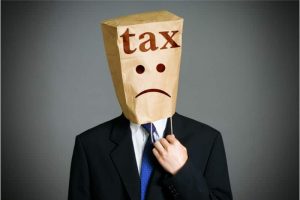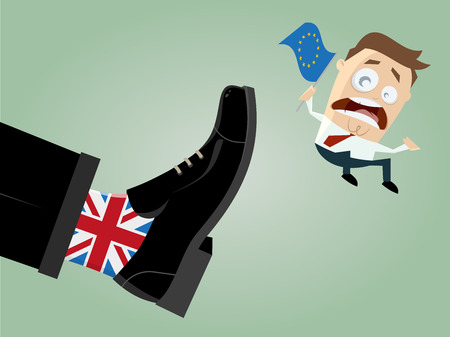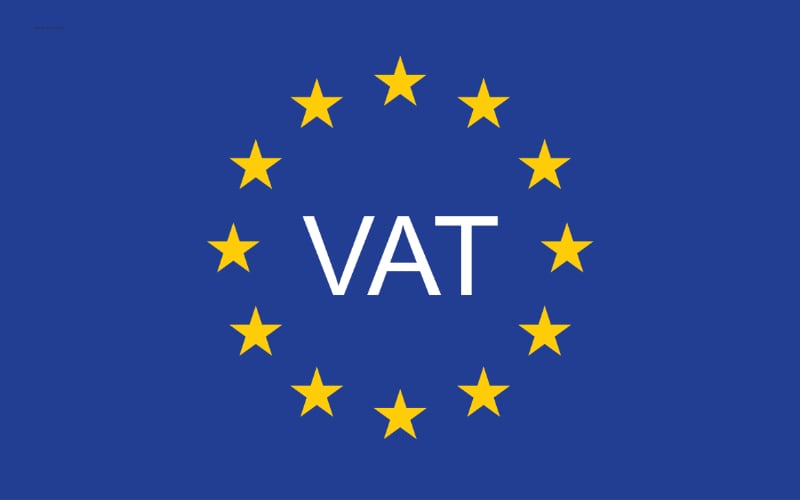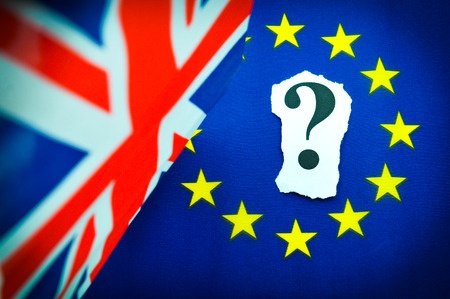VAT on shipping in the UK and overseas
VAT has always been one of the more complicated taxes. It’s applicable to most products but not all and the rate of tax varies. The arrival of Brexit and the UK’s withdrawal from the European Union have done little to improve the reputation of VAT and make the situation seem clearer. There is still confusion around how VAT works when doing business with Europe.
 An area that causes misunderstanding is how VAT relates to shipping. Shopping online has seen a significant increase as a result of the pandemic and consumers are often surprised by the shipping costs, and VAT charges, applied even when buying from inside the UK.
An area that causes misunderstanding is how VAT relates to shipping. Shopping online has seen a significant increase as a result of the pandemic and consumers are often surprised by the shipping costs, and VAT charges, applied even when buying from inside the UK.
While VAT might seem a tricky grey area that really isn’t the case when it comes to shipping costs. Whether you’re buying online or sending products for your business the basic principles of VAT are more straightforward than you might think.
What is VAT?
Value Added Tax (VAT) is a consumption tax. It’s applied to the majority of goods and services at a rate of 20%, 5% or zero per cent. Do note at this point that it relates to products consumed in the UK as well as services.
A small number of items are exempt from VAT and these include things like postage stamps and insurance.
Businesses with a turnover of VAT rated goods above £85,000 are required to register for VAT. It is possible to register prior to that voluntarily which means you must charge VAT but can also claim it back.
Don’t forget VAT is a tax. Don’t think of it as income for the company making the charge. Instead, remind yourself that it is being collected by them and passed on to the government.
VAT on shipping in the UK
It can be a bit of a surprise to realise that VAT is charged on shipping in the UK. When we buy something in a shop on the High Street we don’t really think about VAT because it is included in the price. When you order something online if the company is VAT registered then VAT is added to the delivery cost. This is because it is a tax applied on services as well as goods. Arranging postage and delivery of an order is considered to be a service. You may have spotted above that postage stamps are exempt from VAT and that wasn’t a typo. Postage stamps themselves are VAT free but when you post an item to a customer you are providing a service and that’s where VAT comes in.
Additionally, not charging VAT on shipping would create an opportunity for tax evasion that HMRC would be keen to avoid. If delivery was VAT free then the cost of goods could be reduced and shipping costs pushed up as a way to avoid paying tax.
How much VAT is charged on delivery is based on the VAT rate of goods. So it’s easy if everything you sell has the same rate. However, an online shop that sold goods with a mix of rates would need to take this into account when adding VAT to their shipping rate. The tax needs to be applied proportionally by looking at the percentage of the total goods at each rate makeup.
To calculate this look at the cost of the goods before applying the shipping charge and see what percentage of the total is made up of goods at each rate. Then apply that breakdown to the shipping total. For example, if a £10 purchase is made up of a £7.50 item rated at 20% and a £2.50 item rated at 5% then 25% of the shipping cost will have 5% VAT and the remaining 75% will need the 20% rate applying.
If you’re not certain of the VAT rate for an item check the list on the HMRC website or talk to our VAT specialist at Tax agility.
The VAT should always be added to the total of the invoice and it’s this that can be off-putting for consumers online when they realise how much their shipping will cost. Of course, customers will only be playing a single shipping charge and some may use this as a reason to buy more and justify the cost. Others may abandon their baskets particularly if they are buying lower-cost products.
There’s no clear way to stop VAT on shipping from impacting your sales. However, there are a few approaches retailers can explore. Encouraging making more than one purchase may work as it will give a lower ratio of postage to item. Alternatively, increasing prices slightly and introducing free delivery for sales above a certain amount may make the difference. Free shipping is also VAT free but means the company will have to bear the cost of it and potentially make it up in the price of goods.
How does Brexit impact VAT on shipping?
With Brexit blamed for introducing extra complications and paperwork, it’s not unreasonable to assume that it must have an impact on VAT, and probably a negative one.
After all, in 2014, the introduction of VAT charges for digital products in the EU caused consternation amongst small businesses as it required the vendor to pay VAT on products in the country the purchaser lived in. Given the UK’s high minimum threshold for VAT, many small businesses were not registered and the potential costs associated with the change would have likely put them out of business.
But when it comes to the question of whether UK companies need to charge VAT on shipping post Brexit, the answer is clear.
VAT is charged in the country where the goods are used or the services are carried out. So for EU customers VAT applied is the location they reside in.
This means that VAT does not need to be charged in the UK on goods sent overseas or on international shipping. A rate of zero can be applied which extends to the shipping. Companies will need to ensure that they have paperwork in place to show that the items went outside the UK. Keeping the paperwork for 6 years is a requirement.
It is worth noting though that while there is no VAT on shipping, there is a good chance that the country you are shipping to will require import VAT to be paid. This is charged by the country that you are shipping to and as a result, will vary. To find out if this is the case, the process and whether it can be charged at the point of sale, you’ll need to check with their equivalent of the HMRC.
https://www.sage.com/en-gb/blog/customs-and-vat-after-brexit/#vat-anchor-link
An exception to the above is Northern Ireland where the rate charged will depend on whether goods are going to the EU or the rest of the World.
VAT and Shipping
Applying the basic principles of VAT makes understanding how it relates to charges on carriage quite straightforward. It doesn’t need to be confusing when it comes to shipping internationally or in the UK.
Just remember:
- VAT registered companies in the UK have to charge VAT on shipping costs because it is a service.
- The VAT charged on shipping is proportional to the VAT rates applied to the goods. The government refers to this as, “follows the liability of the goods”.
- Goods shipped overseas are not subject to VAT in the UK and there is no VAT on their shipping.
- Individual countries, including the UK, usually charge import VAT in the final place of consumption.
- Businesses need to keep their VAT paperwork.
VAT is a broad area of taxation and to ensure that your business complies it’s always best to consult VAT experts like TaxAgility who know the ins and outs of the legislation.
Is complacency the real reason why businesses fail?
You’re probably thinking, “Oh no, not another one of those ‘why businesses fail articles’”. This article is certainly about why businesses fail, but this one is looking at the issue from a slightly different point of view. You see, the pandemic, for all its downsides, affords us a view of business issues from an accelerated lifecycle perspective. As an accountancy practice in London, TaxAgility we’ve learnt a lot over the past year.
In just a short space of 12 months, businesses have been hammered by a range of common issues one might not expect to see all at once during the normal lifecycle of a small business. At least not in such a short space or time, or as a result of a cascade of other business related troubles.
 For instance; it’s common for a business to fail because it experiences cash flow issues, or the loss of a major client, or staff turnover, problems or supply chain issues, or reduced seasonal footfall, even the occasional export/import issues. In recent times though, some businesses have experienced all of these, all together, as a result of both pandemic issues and the fall-out from Brexit impacting European supply routes and trading partners.
For instance; it’s common for a business to fail because it experiences cash flow issues, or the loss of a major client, or staff turnover, problems or supply chain issues, or reduced seasonal footfall, even the occasional export/import issues. In recent times though, some businesses have experienced all of these, all together, as a result of both pandemic issues and the fall-out from Brexit impacting European supply routes and trading partners.
In a normal business lifecycle, all these issues can surface from time to time, sometimes over many years, and many can be weathered if handled competently. However, the global pandemic and Brexit have effectively put many businesses in a lab test tube, exposing them to a variety of tests within a short space of time. Many business owners and entrepreneurs have struggled with this. Furthermore, many more mature businesses have found that their business models simply cannot weather this type of storm.
While it’s easy to simply blame the pandemic or even Brexit, for some, the reason the business failed is not just because of these two protagonists. It’s likely that the business was already weak due to several other non-visible issues. The pandemic and Brexit have acted as a catalyst and exposed an underlying complacency in the way business has been done up to now.
Check out our articles on:
Complacency in business is a killer
 It’s important to be clear here, there’s no suggestion that a business fails because the operator of the business is sat twiddling their fingers or just counting the cash coming in. That’s not what we mean by complacency. Complacency can be as simple as working hard to meet business goals, but without acknowledging that the markets are changing around them. It’s a case of being overly ‘self satisfied’. The root cause can often be attributed to fear – fear of change, fear of upsetting what appears to be working. Under such circumstances a business owner simply convinces themselves that all is okay, rather like looking in a mirror and only seeing what you want to see.
It’s important to be clear here, there’s no suggestion that a business fails because the operator of the business is sat twiddling their fingers or just counting the cash coming in. That’s not what we mean by complacency. Complacency can be as simple as working hard to meet business goals, but without acknowledging that the markets are changing around them. It’s a case of being overly ‘self satisfied’. The root cause can often be attributed to fear – fear of change, fear of upsetting what appears to be working. Under such circumstances a business owner simply convinces themselves that all is okay, rather like looking in a mirror and only seeing what you want to see.
The problem could best be exemplified by what has happened to the High Street, particularly larger stores. Such stores rely extensively on foot traffic, so when this dried up during the pandemic, so did cash flow. Some did have an online element to their business model, but not enough to support the operational cash requirements of the business when regular footfall derived income fell away.
Competitive business models will erode your primary revenue sources
You might be thinking that it’s a little harsh to criticise stores for not foreseeing something like a pandemic. The reality though is that more and more business is being done online, the trend is clear and some businesses simply haven’t adopted this extensively enough or quickly enough. Of course, it’s harder for some product lines to adapt because of the need for consumers to interact directly with this products. But not for all though, especially consumer electronics, many leisure items, regular domestic consumables and many others. Even retail apparel, although harder to manage online, is destined to increase further.
Buying without fist seeing a product is far from new. Mail order has been around since the 60’s – the 1860’s! The first mail order business was formed in 1861 by Welshman Price Pryce-Jones.
Another famous clothing and fashion related mail order catalog, Grattan, started life in 1912 and became very popular in the days prior to the internet, along with Littlewoods, Kays, Freemans, Marshal Ward and Great Universal Stores. Much has happened to them since the internet revolution. Most have either been acquired or evolved, with a web front being a major part of their business model. Take Littlewoods for instance. After merging with Great Universal Stores to become Shop Direct in 2003, very.co.uk was launched in 2009. They pride themselves on consistent reinvention. Check out Very’s story here.
Retails stores have been popular because people like to go out and shop. Will this continue? Probably. However, the population has now had an experience like no other and along with other pressures, such as the parking ordeal many towns now represent for those driving, and Covid’s likely legacy, the attraction may wane. The point is, alternatives exist, business models evolve, consumer appetites are fickle and popularity can change in an instant. If you don’t have a Plan B, then beware. In fact, if your Plan B was the internet, it probably now needs to be Plan A.
Innovation, make it part of your company’s culture
Innovation is central to a business being able to keep up with the fast pace change we see in today’s consumer markets. We believe that for a company to be truly successful, innovation must be part of its culture. Just like Very. If it isn’t, employees and key management are likely to get complacent, because they are on the same tread mill everyday, with little motivation to explore new ideas and way to better serve their market.
Of course, we recognise that most companies have an eye on where their markets are going. More often though, the changes they foresee are not necessarily seismic in nature. Often they represent new product or service derivatives – more subtle shifts, as opposed to something that represents a completely different way of working. The latter represents more of an environmental response. Environmental pressure is the most likely catalysts behind evolution – not just in nature, but in business too. Nature is a great teacher.
Innovation should be a key focus area for a business’s management, not just product or service improvements, but also environmentally, in how markets and consumers are reached, engaged, and fulfilled in response to changing attitudes, technologies and needs.
It’s not just a case of, ‘lets get online’ either. That ship has sailed, so to speak, as every business should have an online aspect to their brand. Innovation online today requires thought around user experience, and how to create a better ‘experiential’ dimension to a user’s journey.
Complacency is behind many of the commonly associated reasons for business failure
The following represents a list of some of the most common reasons why a business fails. There’s nothing new in terms of the reasons. However, if we look at these with a somewhat different eye, it’s not hard to see the part complacency plays.
1. No viable business or marketing plan
 The business has been set up, undoubtedly with good intentions and a vision, but without any form of business planning – basically, on a ‘wing and a prayer’, because the person behind it believed totally in what they were doing, perhaps even disregarding what others were saying or what the market indicators suggested.
The business has been set up, undoubtedly with good intentions and a vision, but without any form of business planning – basically, on a ‘wing and a prayer’, because the person behind it believed totally in what they were doing, perhaps even disregarding what others were saying or what the market indicators suggested.
A business plan is meant to take a good look at the realistic requirements for a business to achieve success, the resources required, and timescales. It should also look carefully at contingencies given associated risks with the target market. For instance, what would happen if first sales don’t come within the planning timeframes? How much cash would the company need to cover the deficit and how long could it survive before sales revenues begin to appear?
Excited entrepreneurs can often cast risk to the wind, believing firmly in themselves and ignoring sage advice or overly satisfied with early encouragement from prospects. How often have you heard a potential prospect, lavish praise on a new product you are trying to sell, provide endless encouragement, but then not buy. The danger is that a business owner can believe the hype over reality and become overly self-satisfied in the strength of the product and market acceptance. In other words, complacent belief in success, despite other possible waning signs.
As a small business accountancy firm, we are always surprised how often we find businesses that run in to problem for the simple reason that they either don’t have a business plan (or marketing plan). Don’t make this simple mistake, it’s business 101.
2. Lack of a strong value proposition
 Similar in nature to lack of a business plan, not having a strong value proposition clearly articulated and tested, can stem from over confidence gained from an early interest in a product or service from friends and family eager to boost egos. Ultimately, only your target audience really matters and early affirmation of product viability through market research should replace friendly encouragement as the basis of the business. Put simply, does the market actually need your product and do they buy into the value it professes to offer?
Similar in nature to lack of a business plan, not having a strong value proposition clearly articulated and tested, can stem from over confidence gained from an early interest in a product or service from friends and family eager to boost egos. Ultimately, only your target audience really matters and early affirmation of product viability through market research should replace friendly encouragement as the basis of the business. Put simply, does the market actually need your product and do they buy into the value it professes to offer?
3. Lack of cash
A fundamental mistake many new small businesses make is to run out of cash. They just get the numbers wrong. Again, it’s usually due to over confidence, over estimating revenues, underestimating timescales and underestimating costs.
Few plans ever go to exactly to plan, there are always hiccups and unforeseen problems. How well you have built contingencies to cover the costs of these ‘problems’, will determine how likely you will survive if a problem becomes extended and starts eating into cash. A common cause is simply due to revenues not arriving to plan. This is almost entirely out of the hands of the business, unless it’s secured early orders, but once they have been fulfilled, ongoing revenues need to happen quickly.
As we saw with the pandemic, it’s likely the vast majority of small businesses would not have survived unless they were given cash lifelines – either loans or help to pay salaries. However, few could have foreseen the extent of the crisis and there’s still an uncertain future, as many business still don’t know if their markets will return to a level that will support their operational cash flow needs.
As accountants working with a variety of small business types, our tip is to at the very least spreadsheet your cash flow workings, be realistic and brutally honest with yourself – look at worst case scenarios and build up from that. Do this regularly too, especially if circumstances change.
4. Over reliance on a few large customers
 It’s a nice feeling, having a couple of really great clients feeding your cash flow each month. For some business owners, such reliance would make them feel distinctly nervous. However, for others, especially those who have a great working relationship with their clients, perhaps are even friends, complacency can set in.
It’s a nice feeling, having a couple of really great clients feeding your cash flow each month. For some business owners, such reliance would make them feel distinctly nervous. However, for others, especially those who have a great working relationship with their clients, perhaps are even friends, complacency can set in.
TaxAgility Accountants also works with its clients as business advisers, and businesses with a heavy reliance on a few major clients is an all too familiar pattern, especially with smaller or niche clients.
The problem is that you may never know there’s a problem with a client until it’s too late. When a business gets into trouble, it can be tough for a business owner to admit this to themselves and take action early. Also, because pride and ego play a part, a troubled business owner may not let his clients or suppliers know. Ultimately, the troubled business stops paying its bills, leaving your business looking at a write-off. As time ticks on, complacent business owners realise that they may not be able to fill the revenue gap quickly enough, as new business development can take a lot of time, especially for specialist or niche products and services. If this isn’t reconciled quickly, cash flow problems arise and that company’s ability to pay its debts leads to insolvency.
The answer here is to always have more clients that you actually need to make a comfortable profit margin. Don’t let a few large clients dominate your cash flow security.
5. Taxation oversight
 Tax is a complex discipline, made worse where issues such as overseas VAT is concerned. Always get specialist advice, especially now we are post-Brexit and the situation with the EU is far from clear.
Tax is a complex discipline, made worse where issues such as overseas VAT is concerned. Always get specialist advice, especially now we are post-Brexit and the situation with the EU is far from clear.
Don’t make the mistake of simply assuming you don’t have to pay taxes. Or indeed, that the country you are doing business with won’t demand tax is deducted until you can prove where your company is domiciled, can be simpler said than done. There’s a heavy focus by governments at present on taxation as applied to digital products and services.
Having a chunk of change removed from your expected invoice payments, because a clients obliged to hold back tax payments, can cause serious cash flow issues.
Tax advice and tax planning are key services TaxAgility provide. It is a complex issue, so take good tax advice if you are in any doubt
6. Dependency on key staff
 Having people you can trust in key positions within your business is a great help and a boost to confidence, in that you believe somebody ‘has your back’ and is working with your’s as well as their own interests at heart.
Having people you can trust in key positions within your business is a great help and a boost to confidence, in that you believe somebody ‘has your back’ and is working with your’s as well as their own interests at heart.
However, one can get complacent and start ignoring the warning signs that all may not be well with your ‘partners in business’, or indeed people you rely onto get fundamental aspects of the job done. Circumstances might arise where a key person becomes incapacitated or unreachable on holiday. Business may become severely affected. Worse still is the prospect of effectively being held to ransom by a key skill bearer who suddenly decided that they are unhappy.
People are naturally defensive where sharing aspects of their work is concerned. For some, the thought that they could be replaced is unbearable. At some point the “you couldn’t do this without me” syndrome becomes a clear and present danger to the business, especially if the individual concerned is a key member of the team.
Always ensure other people can cover the roles required and, make sure this attitude is part of the company culture and embraced by all.
The other concern with dependence on key staff is the potential for fraud. It’s a subject of its own. We have an article on small business fraud here.
When people believe they have your complete trust, some may take advantage of this, or find themselves pressured in exploiting your trust because of negative personal circumstances. Don’t get complacent, review your relationships and levels of trust within the business regularly, so you can spot the warning signs.
Final thoughts
When it comes to the main reasons why businesses fail, there’s nothing new under the sun, as the saying goes. However, what recent events have taught us is that the catalysts for failure can be different to what we might normally be used to.
Is what we experienced recently just a ‘one-off’? An extraordinary event? Possibly. But, consider the pace of change we have seen in other areas of business over the past few years, such as new technologies, significant growth in internet enabled businesses, and the need to adapt to fast moving consumer / client trends as they adopt different buying or working practices. Such changes point to a future requiring businesses to be far more innovative and adaptable, not taking their client base for granted and definitely not being complacent in their day-to-day operations and outlook.
If you are concerned about the issues your business is facing, act today. TaxAgility accountants provide specialist accounting services for small businesses. We’re based in Richmond and Putney, but serve clients throughout London and the south east. Contact us here.
Why not check out our series on building a better business here.
Getting ready for Brexit
 When it comes to Brexit, business owners are split into two camps.
When it comes to Brexit, business owners are split into two camps.
One group believes that the impact of Brexit is minimal to their businesses, which range from providing consultancy to logistic services, to multi-disciplinary companies spread across the UK. Their size ranges from two people to teams of several hundred.
The other group believes the opposite. To them, the impact of Brexit is enormous, potentially disastrous even though they may not necessarily rely on any EU supply chain. They can also range from individuals providing consultancy services to business owners who offer local transport services and other services across the UK.
The common attribute both groups face is uncertainty and under this circumstance, the best thing to do is to prepare as best as you can while continuing to deliver an excellent service to your clients. As preparation is key, we aim to discuss a few points in this post which you can do now to prepare your business, either way.
EU workers
Many EU workers are keen to remain in the UK and we have seen plenty of business owners actively encourage them to do so. The first thing EU workers need to do is to apply for “settled status” (aka Indefinite Leave to Remain) with the Home Office if they have been here for five years or more. Alternatively, they can apply for “pre-settled” status (aka temporary residence) if they have been here less than five years but longer than six months.
A weaker pound
The pound has dropped in value following the Brexit referendum, currently sitting at around 1.15 Euros at the time of writing. A weaker pound has challenges and advantages depending on how you look at it. One clear advantage of a weak currency is that it can help to boost the UK’s export, as the goods will be less expensive to foreign buyers.
A weaker pound will also attract foreign investments, as their money will buy more. The UK’s economy is still the fifth largest in the world (if we don’t count California as a ‘country’) and there are overseas companies looking to get a foothold in this market, giving businesses in the UK a chance to forge some profitable partnerships with foreign investors.
Having said that, a weaker pound will have its disadvantages – imported goods will be more expensive for consumers and it will be harder for the Government to pay back debt issued to foreign investors.
If you haven’t done so, it’s wise to start creating a business plan to see how a weak pound could affect your business.
Operations and supply chain
At the time of writing, we don’t know what the tax implications will be when it comes to importing goods from EU countries to the UK, but if you haven’t taken a precautionary initiative to source for non-EU suppliers, do it now. Also, don’t forget to factor the impact of costs and the potential delay in the movement of goods on your operations.
Consider a new sales and marketing plan
Regardless of Brexit, it pays to revise your sales and marketing plan and make sure what you’re selling still meets the needs of your clients, local and overseas. If you deal with goods, make eCommerce one of your key sales strategies because it is an area that will continue to grow and allow you to reach customers all over the world.
Brexit and financial planning
Cash-flow planning is vital in any situation and can help your decision- making process. The reason is simple; it makes you go through the best and the worst scenarios and allows you to see your options without bias or prejudice.
VAT will continue after Brexit, but the rates may move should the Government wish to help the economy a little. At present, UK businesses selling to EU clients can claim VAT refund online, this may change.
How TaxAgility can help contractors and small businesses in London
At TaxAgility, we have a team of Accountants working with businesses across London. We excel at handling accounts & bookkeeping, payroll, VAT, management consultancy and giving solid, no-nonsense tax advice.
We also help contractors and small businesses to grow, providing realistic business guidance and advice. If you’re interested to know how a solid business plan with realistic financial KPIs can benefit your business, give us a call on 020 8108 0090 and book a free, no-obligation meeting.
This post is intended to provide information of general interest about current business/ accounting issues. It should not replace professional advice tailored to your specific circumstances.
Do You Have A Brexit Plan? You Should.
 And so it begins. Article 50 was triggered by the Prime Minister and the two years of negotiations with the EU have begun, albeit unceremoniously with early jabs from either side on where their respective red lines are and even a little early sabre rattling concerning historical disputes such as the future of Gibraltar.
And so it begins. Article 50 was triggered by the Prime Minister and the two years of negotiations with the EU have begun, albeit unceremoniously with early jabs from either side on where their respective red lines are and even a little early sabre rattling concerning historical disputes such as the future of Gibraltar.
The PM has even said that “No deal is better than a bad deal”. We wonder how our clients feel about that? And of course that leads us to the question about what plans our clients may start putting in place? How they have faired since the decision to leave was originally taken?
Little impact on small businesses so far
As far as we can tell and also from the results of numerous surveys taken last year, including one from Company Check, over 50% of small businesses have said that there’s been no impact on them, 30% had reported a negative impact largely due to the uncertainty Brexit has caused, and 15% said they have experienced a positive effect.
Another report from Opus Energy claims that many SMEs are unfettered by the Brexit result, with 29% of the 500 SMEs it surveyed reporting they were more confident about their business outlook than they were before the decision to leave was made. Only 20% felt less confident. These results do reflect the great British spirit we often talk about: “From adversity comes opportunity”.
Whether you are a Brexiteer or a Remainer, the die is cast and it’s time to get on with business. We believe that Brexit should be viewed as a form of ‘Creative Disruption’, seen as not just a significant challenge for many companies, but also a sizeable opportunity too. The UK is still the world’s fifth or sixth biggest economy, depending on how you look at the value of the pound. We are a strong nation with a limitless desire to succeed and it would be foolish to believe that the UK need be entirely dependent on EU trade agreements. Can we expect pain? No doubt. But often, businesses that are very comfortable in what they are doing - “making hay while the sun shines”, as the saying goes, can become complacent and end up an industry laggard rather than a leader.
Start Planning For Change
So, for many businesses, maybe this is a wake-up call. Start planning for change, because ready or not, it is coming.
How do you plan? The first potential impact is staff. A lot of companies have become used to employing people from other countries in the EU. We have taken for granted the Italian Chefs, the Romanian fruit and veg pickers and the Polish builders. But, in recent months over 50,000 EU nationals have left the UK. Is this the beginning of a ground swell of people voting with their feet? It’s too early to say, especially there are many EU nationals in non-seasonal or cyclic work have invested personally in this country, much in the same was as those Brits who now live and work in other European countries.
Have you spoken to your EU staff? Have some open discussions and see how they feel. Many may be permanent resident holders and not so inclined to move.
What plans can you put in place to offset the potential loss of staff with training for local employees instead? Consider new apprentice schemes for instance.
Are you overly reliant on the EU for raw materials? Are there alternatives you could explore?
Manufacturers in the UK are some of the businesses that are most optimistic, with over 73% reporting as such in a report by Albion Ventures. IT and Telecoms are next at 65%, with retail SME at 53%. A weaker pound has it’s upsides for these companies, as it makes our products cheap in comparison, as long as labour and raw materials are sourced competitively.
Seize the day while you still can and get planning
So, our advice is to look very closely at your business operations and it potential vulnerabilities. Conduct what the banking world calls ‘stress tests’, by analysing ‘what if’ scenarios and exploring the potential for new, non-EU, partnerships.
You have plenty of time, two years in fact.
Carpe Diem!
How UK Contractors are Affected by Brexit
 It’s been a couple of months since the Brexit vote, and while the dust has slowly been able to settle on what was an unquestionably surprising result, we’ve had the time to look into the ways in which British contractors are likely to be affected from our leaving the European Union (EU).
It’s been a couple of months since the Brexit vote, and while the dust has slowly been able to settle on what was an unquestionably surprising result, we’ve had the time to look into the ways in which British contractors are likely to be affected from our leaving the European Union (EU).
It’s important to note that though the Brexit vote has resulted in some immediate changes to the British economy, including but not limited to the weakening of the pound, new Prime Minister Theresa May has made it clear that the earliest that Britain would give its ‘notice’ to leave the EU, by triggering Article 50, won’t be until the first few months of 2017, after which there will be an up-to two year negotiation period before any changes begin to take place.
Homegrown Legislation is Greater Pain
One of the driving forces of the leave campaign was their assertion that, outside of the European Union, Britain would be able to drop all EU laws as we pleased. This includes the Agency Workers Regulations (AWR); a piece of EU legislation that has proven to be contentious among British contractors.
But there’s a twofold problem here. Firstly, if the UK is going to retain access to the single market then we’ll have to continue to abide by certain EU laws. Secondly, many contractors agree that certain pieces of homegrown legislation, such as IR35, are a much greater pain for contractors to negotiate than anything the EU has thrown their way.
Trade and Immigration Changes
The changes to trade and immigration, especially with regard to working in EU countries (more on that below), is an area in which it’s difficult to predict what is likely to happen.
There’s a good chance that the UK will stay a part of the single market, at least “in some form,” as was former Prime Minister David Cameron’s wording prior to the vote. Depending on how much a part of the single market we remain will make a big difference to the changes British contractors can expect to see post-Brexit.
Contracting in European Union to Require More Hurdles
Contracting in Europe, that is, travelling to Europe to fulfil contracts, or simply selling our services to European customers from home, is an already complicated affair. Britain’s exit from the EU is only going to create more hurdles for contractors looking to work in and with EU countries.
Depending on what trade deals and free-movement of people deals are put in place (with visa-waver schemes potentially having to be set up), these hurdles may be small or they may be great. Only time will tell, but it’s highly unlikely that UK contractors will be shut out of the EU altogether.
Experienced Contractor Accountants
To speak with a professional accountant to discuss how Brexit may affect your contracting business, both at home and abroad, contact us today on 020 8780 2349 or get in touch with us via our contact page to arrange a complimentary, no obligation meeting.
How Would Brexit Affect Your SME
If you’re a small or medium-sized business (SME) owner who currently exports to Europe, whether business-to-business or business-to-consumer, the upcoming European Union (EU) referendum on 23 June may hold a significant weight on your business’s future earnings.
Because the EU operates as a single market with no tariffs imposed on imports and exports between member nations, small businesses exporting from the UK to other EU member states have had it pretty good up until this point; but that could all change should the ‘leave’ camp gain more than 50 percent of the vote at the end of June.
If you currently export to Europe, here are five things to think about regardless of the potential Brexit:
1. There’s a ‘Wealth’ of Potential
It’s no exaggeration to say that some of the wealthiest counties in the world reside within Europe (and, for the most part, are EU member states). High wealth means high consumer spending, and if you’re not tapping into this spending you could be leaving money on what is currently a very reachable table.
2. Does Exporting to Europe Significantly Add to Your Bottom Line?
With that said, you have to ask yourself if exporting to Europe will significantly add to your bottom line, especially if you have high marketing and advertising costs (see below). You can argue that making a smaller profit in Europe is worth it for a short period to gain brand recognition, but if this doesn’t soon pick up you may want to rethink your decision to sell abroad.
3. You’re Geographically Close
Regardless of whether or not Britain is still in the EU after 23 June, we’re still very close to the continent geographically, which means Europe will continue to be a cheap (compared to the rest of the world) location to export to.
4. You Have to Keep Foreign Taxes in Mind
Exporting to Europe means you not only have to pay taxes in the UK but, depending on what you’re selling and how much, there’s a good chance you also have to pay tax in the countries you’re exporting to. These will change should the ‘leave’ camp succeed, but this is a complicated topic nonetheless.
5. Exporting to Europe Helps to Solidify Britain's Place in the World
Not that this should rest on your shoulders alone, but choosing to export to Europe helps to solidify Britain's place (and importance) in the greater world. It also, depending on what you’re exporting, allows the rest of the world to benefit from the exceptional talent and creativity within Britain’s shores.
Experienced EU Tax Accountants
To speak with a professional accountant to discuss the positives and negatives of exporting to Europe, both now and in the future, contact us today on 020 8780 2349 or get in touch with us via our contact page to arrange a complimentary, no obligation meeting.
Brexit: Opinions on the Impact on SMEs
There’s no doubt that you’ve read hundreds of articles and opinion pieces on Brexit and the European Union (EU) referendum over the last few months. For this reason, we’re going to keep this brief.
This is our roundup of varying (and often wildly different) opinions on the potential impact of Brexit on small and medium-sized businesses (SMEs) across the country. If, like 42 percent of small business owners surveyed earlier in the year, you are still on the fence over whether to vote for a British exit from the EU or not, this neutral roundup may help to sway you one way or another.
Remain: Free Movement of Individuals
Though this is a topic of debate that has primarily come up regarding us Brits’ ability to move around Europe (or rather, let’s be honest, the Mediterranean coast) on our holidays with the same ease we enjoy now, research published by the Federation of Small Businesses (FSB) suggested that 70 percent of SME owners said the continued free movement of individuals, and thus, labour, across Europe would influence how they vote come 23 June.
The key here is talent, and it’s a contentious issue among voters. From a small business’s point of view it makes sense to wish to hire the most qualified person for the job, as long as they’re able to legally work in the UK. Voters, on the other hand, argue that British citizens should have precedent in the job market over non-British members of the EU.
Leave: Flexibility and Adaptability
Back in March, and in response to a letter published the week before by the heads of 36 FTSE 100 companies urging Britons to remain in the EU, 200 small business owners signed an open letter urging the British people to ignore “…a minority of managers from Britain's largest companies,” and instead support Britain’s small businesses with a ‘leave’ vote on 23 June.
The emphasis of the letter gave a strong focus to the ideas of flexibility and adaptability; something the signatories of the letter said EU membership hinders, namely commenting that “…we deal with the EU's constant diet of unnecessary regulations which add to our cost base, reduce our bottom line, and raise prices for our customers for no return.”
Remain: Better Trading Channels with Europe
This point has been argued so much it barely bares repeating. But we will because, well, it’s one of the biggest inflection points for SME owners who export to the rest of Europe.
Unsurprisingly, the ‘remain’ campaign has gained almost unanimous support from large companies who do business with Europe on a daily basis. Equally unsurprising is the fact that small businesses who also happen to do business with Europe have also been piping up in favour of a ‘remain’ vote, as despite assurances on both side, it’s hard to predict what trade relations with the rest of Europe will look like post-Brexit.
Leave: Cost of Membership is Too High
The often-cited figure that you see splashed across our television screens (not to mention busses) is that the UK sends £350 million per week to the EU. Though this figure has come up against scrutiny (it’s said that a rebate is deducted before payment, making the actual figure around £280 million per week), it’s difficult for anyone on either side of the equation to argue that that’s not a significant sum.
Though the cost of membership isn’t as big a deterrent to staying in the EU for small business owners than it is to the general public, it’s still a point of contention, with 69 percent of SME owners saying that the high cost of EU membership will affect their vote, according to the FSB.
Experienced Tax Accountants
To speak with a professional accountant to discuss the potential impacts, positive or negative, the results of the EU referendum may have on your small business, contact us today on 020 8780 2349 or get in touch with us via our contact page to arrange a complimentary, no obligation meeting.




